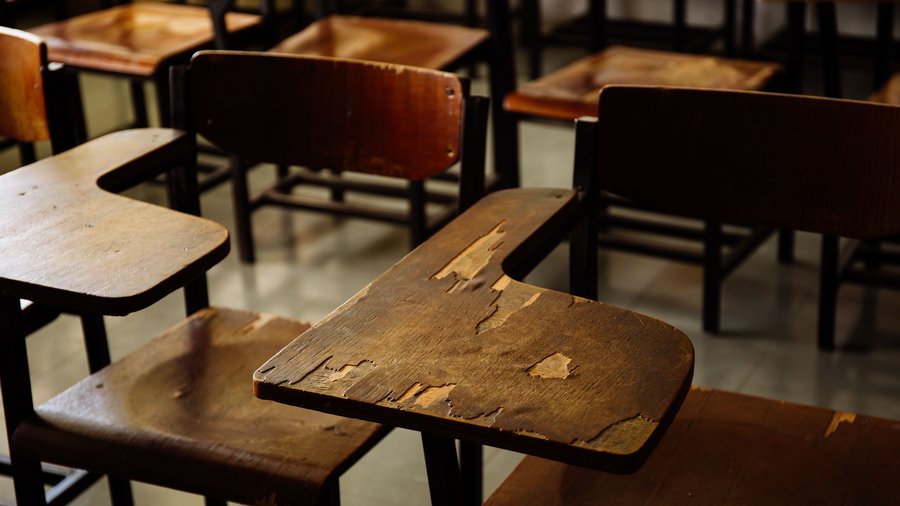Writer in residence Rena Deitz advocates for a returned and renewed aid system for children’s learning and well-being
This op-ed was written by Rena Deitz, who was a writer in residence with the Salzburg Global Center for Education Transformation in 2023.
At a moment when the future of foreign aid is unknown, many who have been critical of aid are holding our tongues and instead using our voices to call for support of the communities that have been abandoned. The consequences are vast: Universities and research centers have to halt potentially lifesaving and groundbreaking research, Afghan women are no longer able to study or get necessary healthcare, and so much more. USAID’s mission and strategy prioritized “Strong beginnings for children through holistic health, nutrition, protection, and education.” As the largest donor for children across the globe, losing U.S. foreign aid threatens children’s lives and well-being.
As a scholar and educator who explores and critiques the politics and mechanisms of foreign aid in education in emergencies (EiE) and social emotional learning (SEL), my efforts are now focused on advocacy. I fear that this moment will upend decades of global investment in children around the world. Foreign investment can have positive effects on the world’s most marginalized children. Funds from foreign donors have bolstered children’s resilience and enabled their learning.
Yet, as we call for returned funding to invest in the world’s most marginalized children, critiques of foreign aid should not go unheard. In the aftermath of the U.S. foreign aid freeze, we need to remake humanitarianism, not just rebalance budgets.
Foreign aid workers, many of whom are now without jobs, describe moments of crisis as opportunities to invest and change the trajectory of young people’s lives. As stated by a former USAID employee, “There's a much more direct impact that programs can have on children and youth in a very vulnerable and exposed setting at the early stages.” So, too, is this moment of upheaval an opportunity to rethink the ways the global community can ensure children’s basic human right to quality, holistic education and support.
As a writer in residence at Salzburg Global in 2023, I analyzed data from my field research exploring a foreign-funded SEL program for refugee and host community young people in Uganda. The lessons learned from that study serve as a springboard for thinking about remaking foreign aid. To summarize these lessons, I pose three questions regarding the future of the global humanitarian and development sector:
1. How can humanitarian responses address individual needs alongside root causes and systemic issues?
Providing even the most successful in-classroom SEL program cannot upend long histories of systemic oppression and inequalities. I’ve argued elsewhere that “targeting the structural issues that adolescent girls and boys face is essential to achieving the broader results that SEL programs aim to produce.” The U.S. halt of foreign aid laid bare the preexisting reality that foreign aid served to perpetuate colonial, hegemonic relations. Responding to acute and protracted crises must combine addressing the immediate, individual response with repairing and restructuring the humanitarian system.
2. Who should have the power and agency in determining priorities and goals for a humanitarian response?
Much of the critique of foreign aid faults donors for mandating certain priorities over others. Yet, I found that local communities assert their agency in how they implement donor priorities. Yes, donors require certain benchmarks on which the implementers must report. At the same time, teachers adapt what they receive to make it fit their classroom’s needs. For much of the aid (and research) community, this is often considered a “lack of fidelity of implementation.” What if we reframed this, as I saw in Uganda, as local teachers and actors coopting foreign aid for their own priorities? Usurping foreign imposition to achieve the outcomes they deem valuable? Perhaps this is why SEL programs are not showing measurable success on “global” indicators, yet they are often valued by communities, teachers, NGOs, and donors. “Successful” foreign aid in the old model occurred when actors’ priorities and incentives aligned. This must be the case in the future, but who holds the purse strings should not determine the primary priorities and goals.
3. What approaches can be applied in reimagining a global-local approach to children’s well-being and learning?
Social emotional learning should not be taken off the table as an approach to bolstering children’s resilience and learning – but the way in which it is defined and designed needs to be reconceptualized. SEL has not demonstrated overwhelming impacts on children’s social and emotional well-being or learning, let alone longer-term peacebuilding outcomes. Yet, as we found in Uganda, perhaps it is at least in part because the measures used to assess interventions’ impacts often do not match what is actually happening in the classroom, nor what is valued by the local communities.
As the global humanitarian community advocates for returned and renewed funding, let’s advocate for a rethinking of aid while not letting global leaders lose sight of the next generation’s future.
Rena Deitz, PhD, is Visiting Assistant Professor of International Education at New York University. Her dissertation research, entitled, “Do Good Intentions Translate? The rise, transfer, and localization of social emotional learning (SEL)” explored the transfer and impact of a globally-driven SEL intervention in a refugee-hosting community in Uganda, asking whether SEL’s effectiveness may be compromised by inadequate localization and measurement adaptation.
The Salzburg Global Center for Education Transformation offers writing residencies at our inspiring home of Schloss Leopoldskron to thought leaders and educationalists working to advance the agenda of education transformation .
We invite partners who are interested in supporting these writing residencies to email Dominic Regester at dregester@salzburgglobal.org.


